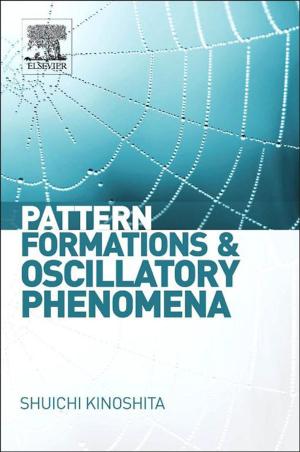Direct versus Indirect Realism
A Neurophilosophical Debate on Consciousness
Nonfiction, Health & Well Being, Medical, Specialties, Internal Medicine, Neuroscience, Psychology, Neuropsychology| Author: | ISBN: | 9780128121429 | |
| Publisher: | Elsevier Science | Publication: | January 12, 2018 |
| Imprint: | Academic Press | Language: | English |
| Author: | |
| ISBN: | 9780128121429 |
| Publisher: | Elsevier Science |
| Publication: | January 12, 2018 |
| Imprint: | Academic Press |
| Language: | English |
Direct versus Indirect Realism: A Neurophilosophical Debate on Consciousness brings together leading neuroscientists and philosophers to explain and defend their theories on consciousness. The book offers a one-of-a-kind look at the radically opposing theories concerning the nature of the objects of immediate perception—whether these are distal physical objects or phenomenal experiences in the conscious mind. Each side—neuroscientists and philosophers—offers accessible, comprehensive explanations of their points-of-view, with each side also providing a response to the other that offers a unique approach on opposing positions.
It is the only book available that combines thorough discussion of the arguments behind both direct and indirect realism in a single resource, and is required reading for neuroscientists, neurophilosophers, cognitive scientists and anyone interested in conscious perception and the mind-brain connection.
- Combines discussion of both direct realism and indirect realism in a single, accessible resource
- Provides a thorough, well-rounded understanding of not only the opposing views of neuroscientists and philosophers on the nature of conscious perception, but also insight into why the opposition persists
- Offers a unique "dialog" approach, with neuroscientists and philosophers providing responses and rebuttals to one another’s contributions
Direct versus Indirect Realism: A Neurophilosophical Debate on Consciousness brings together leading neuroscientists and philosophers to explain and defend their theories on consciousness. The book offers a one-of-a-kind look at the radically opposing theories concerning the nature of the objects of immediate perception—whether these are distal physical objects or phenomenal experiences in the conscious mind. Each side—neuroscientists and philosophers—offers accessible, comprehensive explanations of their points-of-view, with each side also providing a response to the other that offers a unique approach on opposing positions.
It is the only book available that combines thorough discussion of the arguments behind both direct and indirect realism in a single resource, and is required reading for neuroscientists, neurophilosophers, cognitive scientists and anyone interested in conscious perception and the mind-brain connection.
- Combines discussion of both direct realism and indirect realism in a single, accessible resource
- Provides a thorough, well-rounded understanding of not only the opposing views of neuroscientists and philosophers on the nature of conscious perception, but also insight into why the opposition persists
- Offers a unique "dialog" approach, with neuroscientists and philosophers providing responses and rebuttals to one another’s contributions















